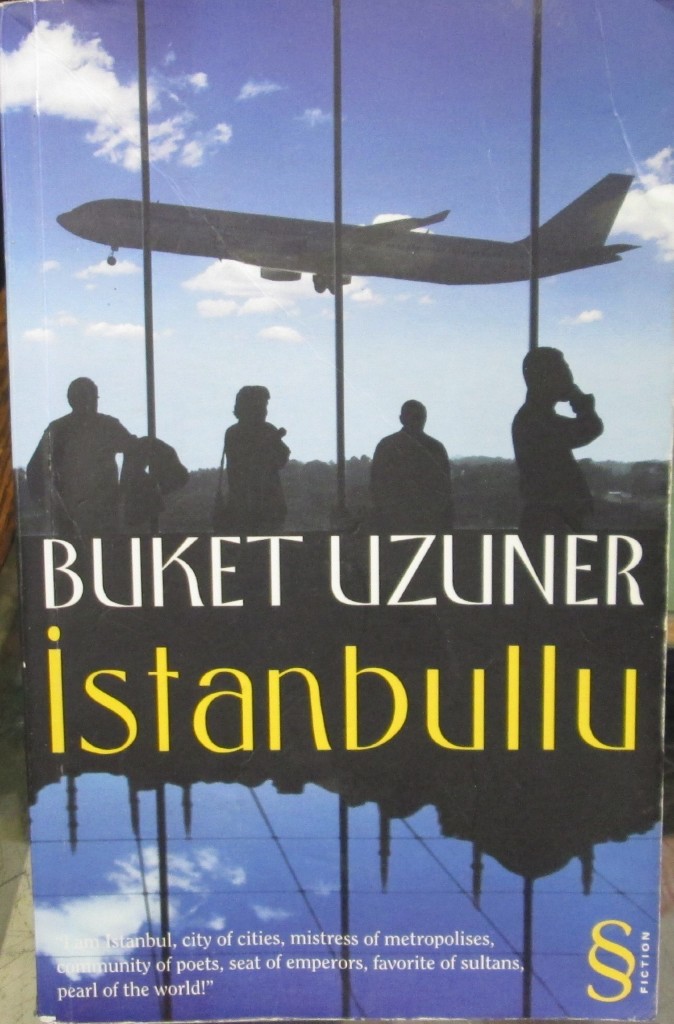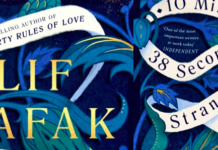What does it mean to be an Istanbullu? Can everyone who lives or has lived in Istanbul have the right to call themselves a real citizen of Istanbul? The exploration of this theme, that resonates especially among expats, newcomers and Turkish internal migrants, transpires in the length and breadth of Buket Uzuner’s Istanbullu.

Taking place within the confines of one sole scenario, Atatürk airport, in a short span of time, a wide range of characters coincide briefly at Istanbul’s bustling gate of entrance and exit. Belgin Doruk, a Turk living in the States moves back to Istanbul after a long absence to start a new life with her boyfriend Ayhan, a sculptor living in Cihangir. Professor Yanis Seferis is a Rûm waiting to board a flight to Athens. Tijen Derya is the assistant of Mehmet Emin, a businessman arriving from Moscow. Susan Constance is an American in love with Istanbul and Baturcan Uzunçay is the airport barman listening to his clients’ stories. These and other characters populate every corner of the airport at the same time and all of them have an internal debate, expressed either through an internal monologue or through a real or imagined conversation: Can they consider themselves Istanbullus?
From the first pages of the penultimate Uzuner novel — having just published Toprak — Istanbul itself welcomes us, traps us with its grandiloquent words and invites us to have a bird’s eye view of the confused ants moving around uncertain if they belong there or not. We are gifted with a rich static Polaroid that delineates the intimate dilemmas of every Istanbul social stratum: from the villager emigrated to the big city, to the bohemian artist, to the intellectual with anti-European sentiments. These characters slowly start to intertwine into a complex web of relationships that digs in the idea of Istanbul as a big village where everybody is linked within a few degrees of separation.
The introduction of characters flows naturally, despite that after 120 pages the author is still presenting new ones. By half way through the book it can become a bit tedious especially when we know for certain that some of them will have no weight on the novel’s final outcome. With a wise combination of some common qualities and other treats that feel very real in every character, Uzuner manages to flesh them out. Any reader that has lived in Istanbul surely will start to link characters with real people that he or she has met here. While the connections between the characters evolve smoothly, it’s not so for the resolution of certain story-lines that sometimes leave us in a slightly frustrating cul-de-sac. But it is in this unique approach where the beauty and risk of the book reside. The true story of the book is the inner conflict of the characters. An apparent computer system failure sets the pieces in motion, but it doesn’t happen until we’re well into it all. The plot can be described in a sentence but what should matter to the reader is the internal maps of the characters — their reasons to consider themselves Istanbullus.
The handling of exposition through the characters’ dialogues is a bit on the nose and academic at times, as if specifically directed to readers unfamiliar with Turkish culture. The book will be an excellent Turkish culture 101 for newcomers as it’s a pretty accurate introduction of the ideologies one can find in the bul. However, for the readers long-established in the city, this basic introduction may feel a bit rudimentary and can detract from some of the story’s freshness. Istanbullu is without doubt a spot-on portrait of the different mindsets of the aspiring Istanbullus that populate the city. The novel leaves us wondering if Istanbul makes the dreams of her adopted children come true or, on the contrary, it awakens them from their daydreaming.
Buket Uzuner’s Istanbullu was published by Everest Publishing and translated by Dakan, Kenneth J.
Featured Image Source









